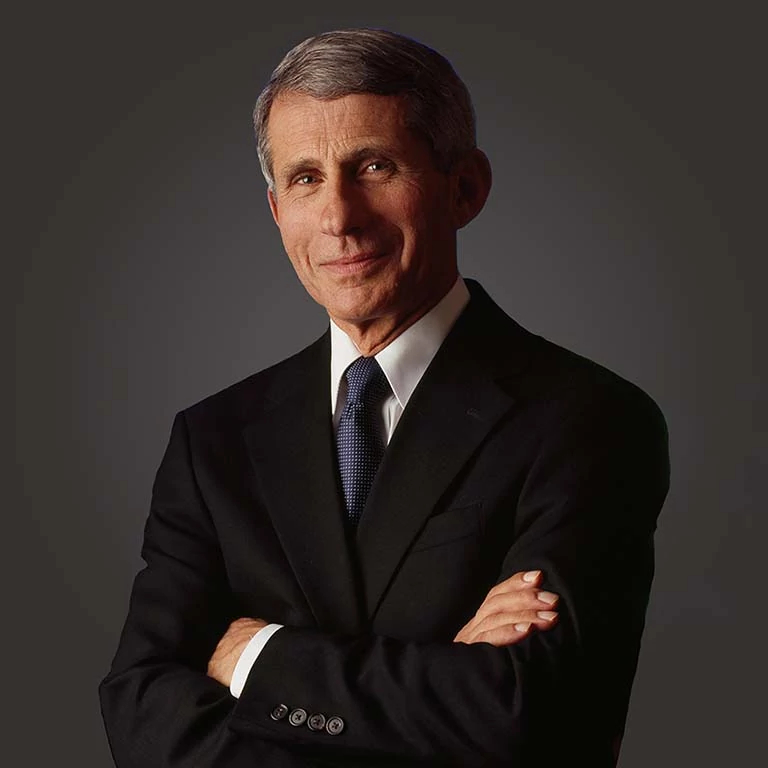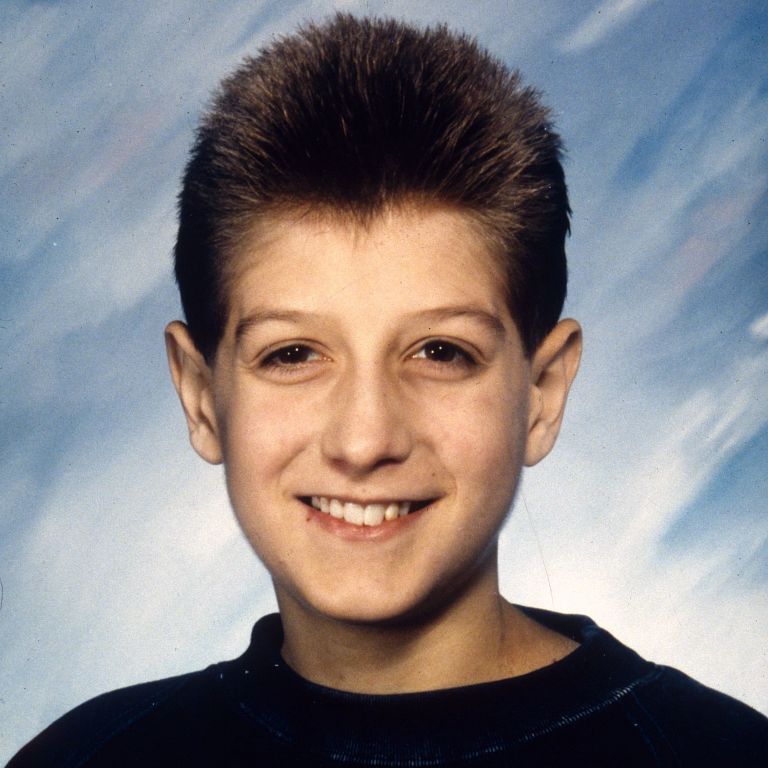Ryan White’s 50th birthday would have been Dec. 6, the same evening that Dr. Anthony Fauci received the Ryan White Distinguished Leadership Award.
The Indiana University School of Public Health-Bloomington’s Rural Center for AIDS/STD Prevention created the annual award to recognize individuals who are “exemplary bearers of the standard of excellence and commitment needed to combat HIV/AIDS.”

Fauci joins a who’s who of past award winners, including trailblazers and activists such as Dr. Joycelyn Elders, Dr. C. Everett Coop and Greg Louganis. Ryan’s mother, Jeanne White Ginder was the award’s first recipient, in 2009, for her continued work as an advocate and activist for those living with HIV/AIDS.
During welcoming remarks, School of Public Health Dean David Allison highlighted Indiana University’s motto, “Lux et Veritas,” which means “Light and Truth.” He commended Fauci for facing challenges throughout his career that required him to be courageous in the face of criticism and speak the truth even when those truths were unpopular.
To understand the significance of this award and the strides being made in the field of HIV/AIDS prevention, it is important to understand the legacy of Ryan White. White was 13 years old when, in 1984, doctors discovered he had AIDS after receiving blood products for his hemophilia. At that time, little was known about HIV/AIDS, and researchers were still discovering methods to suppress the virus in patients.
When White’s diagnosis became public knowledge, he was banned from attending school, even though health officials informed administrators that it was safe for him to join his classmates.
Rather than retreating into solitude, White and his mother fought for his right to return to school. His story quickly garnered media attention, and White became an international spokesperson, dispelling myths about HIV/AIDS and capturing the hearts of Americans with eloquence, courage and grace.

White planned to attend Indiana University Bloomington in the fall of 1990, but he passed away that spring at the age of 18. He left an indelible mark on the world – a legacy defined by teaching others about empathy, knowledge and truth.
The experience of treating patients like White has shaped Dr. Anthony Fauci’s work as a physician, researcher and director of the National Institute of Allergy and Infectious Diseases.
Dr. William Yarber, senior director of the Rural Center for AIDS/STD Prevention and Provost Professor at the School of Public Health-Bloomington, asked Fauci during a fireside chat about his drive to preserve scientific integrity while facing the challenges involved with advising seven presidents during major public health crises, including HIV/AIDS, H1N1, Ebola and COVID-19. Fauci said he started his career as a medical doctor, and because of his one-on-one experience with patients in the early days of the HIV/AIDS epidemic, he made an empathetic approach to patient care his top priority.
During those early days, the experiences for those living with a diagnosis were similar to White’s. Many were completely ostracized from their communities. The stigma surrounding HIV/AIDS caused some political figures to avoid proactively addressing the issue despite the need for action. Political leaders essentially said “talk to Fauci” in response to activist groups calling for answers.
‘Long Light’
Fauci became the face of the federal government’s response, so when activists needed a public figure to direct their frustration toward, they turned to him. Rather than hide from the activists, Fauci said he humbly listened to them. He worked with them and showed that his No. 1 priority was the same as theirs: to save lives.
Facing those who did not understand or agree with his work has been a common thread throughout Fauci’s illustrious career. During the chat, he shared an anecdote about the sage advice he received before his first visit to the White House, to advise President Reagan in 1985. A good friend, who worked for a previous administration, offered words of wisdom that he said still apply today.
“When you walk into the White House, make sure you tell yourself this may be the last time that I’m going to walk into this place because I might have to tell the president something that is an inconvenient truth,” Fauci said. “If you go by that tenet, you will either be kicked out and never (asked back) again, or they will respect you because you’re telling the truth.”
Politics and public criticism are indeed hurdles that scientists must be prepared to withstand. Yarber, who has taught at Indiana University for nearly 40 years, wrote the country’s first school AIDS curriculum and spent much of his early career researching HIV and sex education.
Yarber said he had received hate mail throughout the years from those who questioned the value of his work. He addresses these issues with his students because they will undoubtedly face criticism at some point during their careers.
“We teach students at IU Bloomington not to be intimidated,” Yarber said. “Hate won’t interfere with the work we do. People have a right to learn about their sexual health.”
Fauci offered similar advice for today’s students who wish to be tomorrow’s leaders in science and medicine.
“Never compromise your principles,” Fauci said. “Never compromise your integrity, and never be afraid to tell it like it is. And if the people you’re dealing with have any character and integrity, they will accept what you tell them.”

